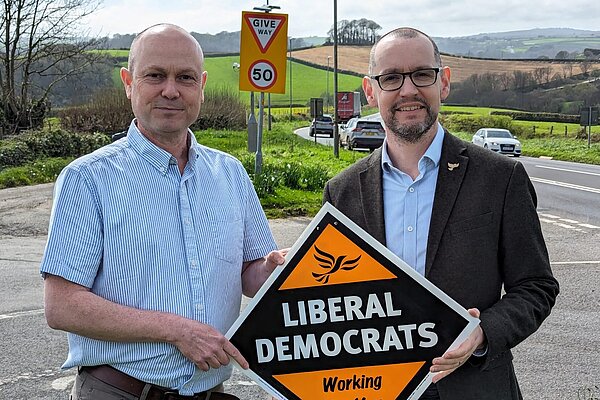A38: Cornwall's Deadly Road
The A38 from Bodmin to Saltash has a death and injury rate 3.5x higher than the national average.
Campaign Group SAFE38 say:
‘The current A38 in South East Cornwall between Carkeel and Trerulefoot has a killed and seriously injured rate three and a half times the national average for a road of its type, severs communities, causes toxic air quality issues, forces oversized vehicles on to unsuitable country lanes, suffers regular flooding and is a barrier to economic growth and prosperity. In July 2023 the Carkeel to Trerulefoot safety package was delayed by the department of transport until post 2030.
SAFE38 ask Colin:
If elected as our MP what will you do to get these vital safety measures delivered before 2030 and what will you do to see a modern fit for purpose A38 delivered which will save lives and secure livelihoods for generations to come?’
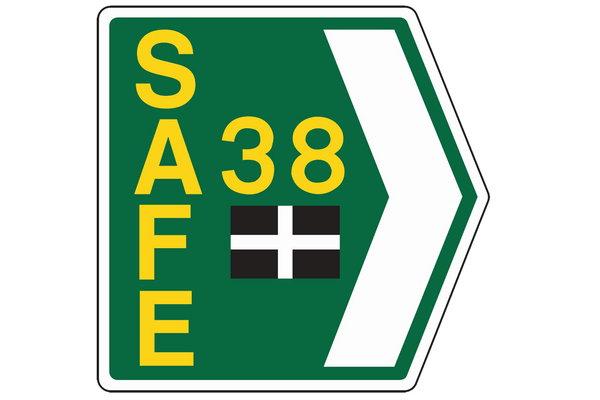
Colin says:
"Too many innocent people are being killed and injured on this deadly road:
"Vital funding opportunities have been missed by our Conservative MP over the past fourteen years when multiple other MPs around Cornwall secured funding for their key roads.
"The outlook for the next five years is bleak, as the outgoing Government has already ruled out funding any new schemes between 2025 and 2030 and the incoming Labour Government’s only manifesto commitment is to fill more potholes.
"A strong local MP may be able to secure concessions from a Government with a small majority, but if Keir Starmer gets a big majority, we are set for a period of austerity.
"I will continue to make the case for improvements to enhance the safety and economic benefit of the A38, and for funding decisions to favour disadvantaged areas like ours. But perhaps the best prospect for change would be to devolve control of the A38 and A30 to Cornwall Council. With direct funding, we could make our own decisions about the best way to improve our roads rather than being passed over in favour of major schemes elsewhere."
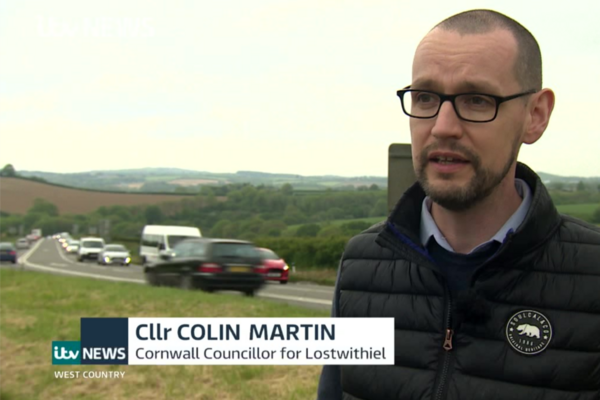
When I was elected to Cornwall Council in 2017, one of my first meetings was with everyone involved in the campaign to improve the A38, including Conservative MP Sheryll Murray, SAFE38 and officers from Cornwall Council and Highways England (now known as National Highways).
It was immediately apparent to me that the 2017 General Election presented a huge opportunity for our cause: When a Government has a large majority, individual MPs are relatively weak, but when Theresa May lost her majority in June 2017, every MP became incredibly powerful.
I knew that in 2010, North Cornwall’s Liberal Democrat MP Dan Rogerson had leveraged this power to secure £56m funding for the dualling of the A30 on Bodmin Moor, so I advised Sheryll Murray to get together with other Cornish MPs and demand Government funding for the A38.
Astonishingly, her response was “I’m not prepared to blackmail my party”!
Over the next two years, the MP for St Austell secured £80m funding for the link road to the A30, and the MPs for Truro and Camborne secured £300m funding for the A30 Carland Cross to Chiverton upgrade which opened this week.
We got nothing.
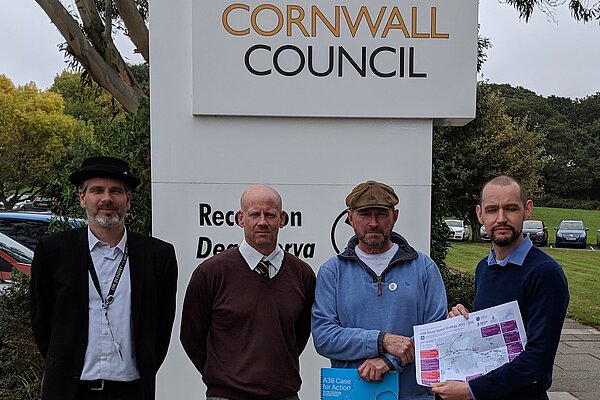
In 2018, the same group met the Secretary of State for Transport, who was in Truro to visit the Park and Ride. The A38 campaigners gathered near Waitrose for a quick photo to hand over the “case for action”, a booklet jointly produced by Cornwall Council, Plymouth City Council and Devon County Council which spelled out the safety, air quality and economic benefits of upgrading the A38 between Exeter and Bodmin.
After the photo, the MP and campaigners were ushered into a meeting room, but I noticed that the Transport Secretary was heading towards a bus! I left the rest of the campaigners and followed him onto the bus. This gave me ten minutes to grill him on the way forward for our campaign. One piece of advice stood out above all others:
“As much as we all care about deaths and injuries, this work will only happen if it is funded by the Treasury. And the Treasury will only fund projects which provide an economic return on investment. So if you want to succeed, you must always focus your requests on economic benefits first, and safety benefits second.”
I reported this advice back to the group, but unfortunately it was not taken. The scheme that was put forward for the 2020-2025 funding cycle was a “Safety package” which provided funding purely to examine options for reducing collisions between Trerulefoot and Carkeel, with no remit to consider economic improvements. As a result, five years later we have been left with a set of proposals to slow vehicles down with speed limits, enforcement cameras and pedestrian crossings, but no plans for any new bypass.
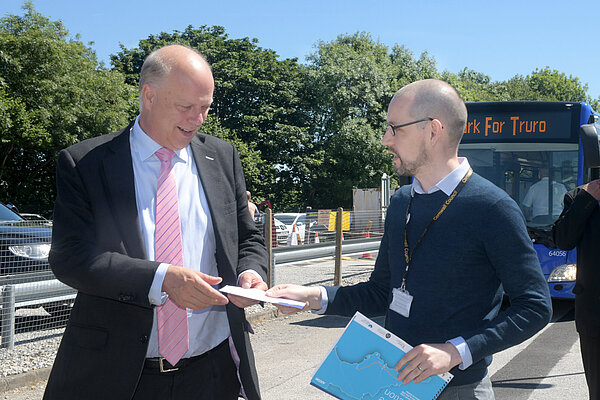
Having missed the opportunity to secure meaningful funding in 2017, we have now been told that there will be no funding at all in the 2020-2025 funding cycle. Labour’s top priority is to keep spending low, so their only manifesto commitment on roads is to fill more potholes (funded by postponing a bypass which had already been approved).
One of the biggest barriers to progress is the fact that the A38 is controlled by National Highways rather than Cornwall Council. This means that even minor alterations such as installing new signage or speed cameras need to go through a hugely bureaucratic national sign-off process.
There is also a fundamental flaw in the formula used to calculate the value of road projects. Two identical schemes in different parts of the country will receive different “Benefit Cost Ratios” because schemes in areas of dense populations and high wages will produce a bigger economic benefit than those in areas of lower population density and lower wages. Of course this “national spreadsheet” mindset goes completely against the principle of “levelling up” which is so important for a disadvantaged area like South East Cornwall. We need an MP who will challenge this faulty logic and fight for investments in poorer areas to be given higher priority so that this inequality can be reversed.
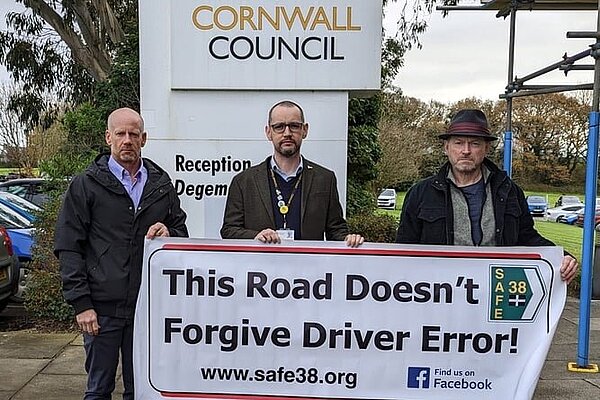
One ray of hope lies in devolution. Both the Liberal Democrats and Labour have committed to providing greater devolution across the country, and I have already been involved with cross-party discussions at Cornwall Council about our ambitions.
Cornwall represents 1% of the national population, and the A30 and A38 represent 2% of the national “Strategic Road Network”. If these roads were handed over to Cornwall Council, along with 1-2% of the National Highways budget, this would give us £56-£112 million per year to spend on maintenance and improvements. Operating outside the national five-year project cycle would allow us to improve junctions one by one, rather than spending years hoping for a huge package to fund them all together.
Whatever the outcome of the election, you can be sure that I will keep working for a safe and efficient A38.
